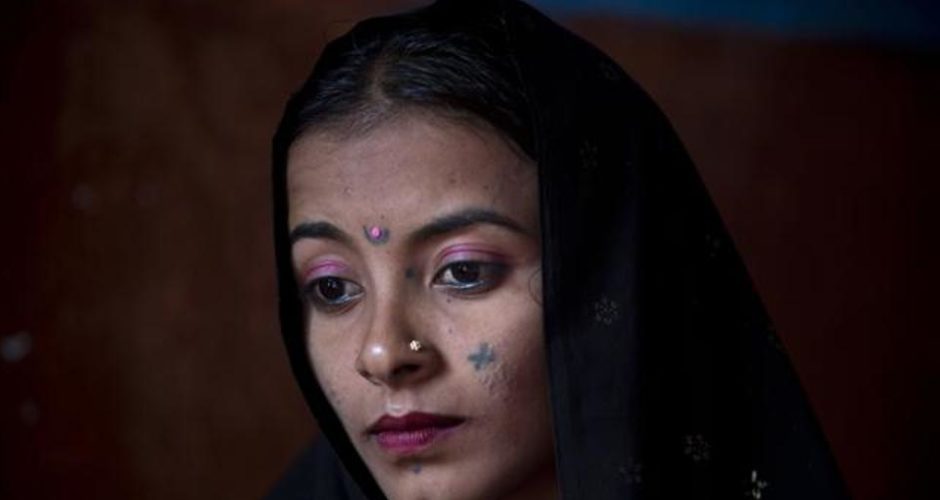MIRPUR KHAS, Pakistan (AP) — The mother rummages through a large metal trunk, searching for a picture of her young daughter taken away in the night to be the bride of a man who says the family owed him $1,000.
Beneath the blankets, clothes and silver ornaments that she wears with her sari, Ameri Kashi Kohli finds two photos, carefully wrapped in plastic, of her smiling daughters.
Ameri tries to remember her daughter Jeevti’s age; few of this country’s desperately poor have birth certificates. With a grin at a sudden recollection she says, “I remember her sister, my youngest, was born when there was a big earthquake in Pakistan.”
That was 2005. Jeevti was 3 years old at the time, Ameri says. That means the girl was just 14 when she disappeared into the hands of the land manager her parents were beholden to.
Her mother is sure that Jeevti paid the price for a never-ending debt.
Ameri says she and her husband borrowed roughly $500 when they first began to work on the land, but she throws up her hands and says the debt was repaid. “We started with a loan, and every time they said they were taking money for our loan, but no one gave us anything to show we paid.” Instead, the debt doubled.
It’s a familiar story here in southern Pakistan: Small loans balloon into impossible debts, bills multiply, payments are never deducted.
In this world, women like Ameri and her young daughter are treated as property: taken as payment for a debt, to settle disputes, or as revenge if a landowner wants to punish his worker. Sometimes parents, burdened by an unforgiving debt, even offer their daughters as payment.
The women are like trophies to the men. They choose the prettiest and the young and pliable. Sometimes they take them as second wives to look after their homes. Sometimes they use them as prostitutes to earn money. Sometimes they take them simply because they can.
Ameri says she has heard stories of other workers whose daughters disappeared, in a country that sees an estimated 1,000 girls like them taken each year. Now, even though she and her family live elsewhere after being tossed out of their home, she’s afraid that her 11-year-old could be taken too.
And like everything else in her life, as a Hindu in a Muslim country, as a woman who is among the poorest of the poor, she knows she will be powerless to stop it from happening.
“I went to the police and to the court. But no one is listening to us,” Ameri says. She says the land manager made her daughter convert to Islam and took the girl as his second wife. “They told us, ‘Your daughter has committed to Islam and you can’t get her back.'”
Ameri works as a day laborer cutting sugar cane and feed for animals in Pakistan’s southern Sindh province, a region dominated by powerful landowners whose holdings stretch for hundreds of acres.
Narrow dirt tracks weave through vast fields where Hindu women in colorful saris squat with small scythes to cut the crops. There’s no talking. Occasionally the women stop for a drink of water. They make less than a dollar a day.
Like Ameri, they’re often indebted to the owner of the land on which they work, kept as virtual slaves until they pay back their debt, which almost never happens.
More than 2 million Pakistanis live as “modern slaves,” according to the 2016 Global Slavery Index, which ranks Pakistan in the top three offending countries that still enslave people, some as farm workers, others at brick kilns or as household staff. Sometimes the workers are beaten or chained to keep them from fleeing.
“They have no rights, and their women and girls are the most vulnerable,” says Ghulam Hayder whose Green Rural Development Organization works to free Pakistan’s bonded laborers.
Employers sexually assault the women and girls, marry them, force them to convert, and rarely will the police intervene, he says. He recalls a case in which a husband accused a landowner of sexually assaulting his wife. The landowner held him for three days, beat him and released him with a warning to tell no one.
An estimated 1,000 young Christian and Hindu girls, most of them underage and impoverished, are taken from their homes each year, converted to Islam and married, said a report by the South Asia Partnership organization.
































